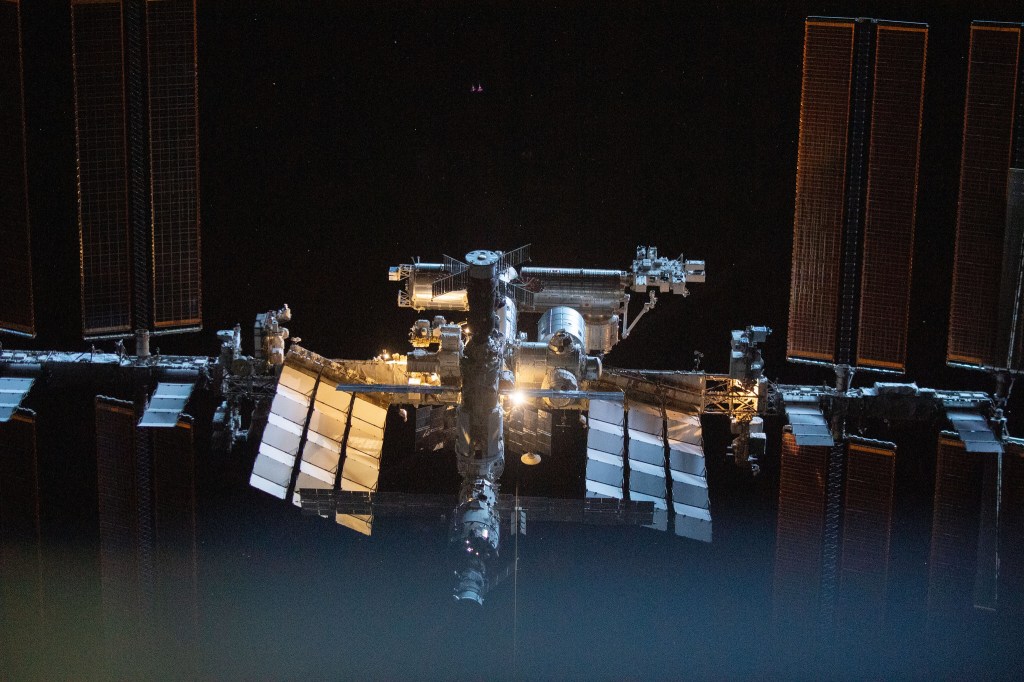Russia will abandon its decades-long partnership on the International Space Station (ISS) after 2024 in favor of developing its own crewed station in orbit, the nation’s new space chief announced on Tuesday in a meeting with President Vladimir Putin.
“The decision to leave the station after 2024 has been made,” Yuri Borisov said, according to the Associated Press.
Videos by VICE
Russia has been ruminating over whether to relinquish its foundational role on the ISS for years, but the question has become especially pressing in recent months as a result of the Russian invasion of Ukraine.
The United States, along with other ISS member nations, have imposed sanctions on Russia and expressed outrage over the war, prompting fiery outbursts from the former director of the Russian space agency, Dmitry Rogozin, who was recently ousted from his position and replaced with Borisov.
“Roscosmos has permission from the government to operate the ISS only until 2024,” Roscosmos told the state-owned Russian news service TASS in March, just a week after the nation invaded Ukraine. “The issue of extending the agreement under the current conditions causes us skepticism.”
Before he was removed as Russia’s space chief, Rogozin feuded with NASA astronauts, implied that Russia could crash the station into the United States, and shared a video that joked about the nation marooning an American astronaut in space. While most of his statements were bluster, Borisov has apparently now made good on Roscosmos’ long-stated reluctance to continue Russian collaboration on the ISS.
The decision to leave the ISS will have major consequences for the station over the future of the station, which is currently scheduled to continue operations until at least 2030, but mission leads from the United States and Russia have assured the space community that there will be no disruptions to the station’s operations in the near term. NASA and Roscosmos inked a deal just weeks ago that ensures ISS crew members will continue to use both Russian and American vehicles to reach the station, regardless of their nationality.
“The agreement is in the interests of Russia and the United States and will promote the development of cooperation within the framework of the ISS program,” which will facilitate the “exploration of outer space for peaceful purposes.” Roscosmos said at the time, according to Reuters.




